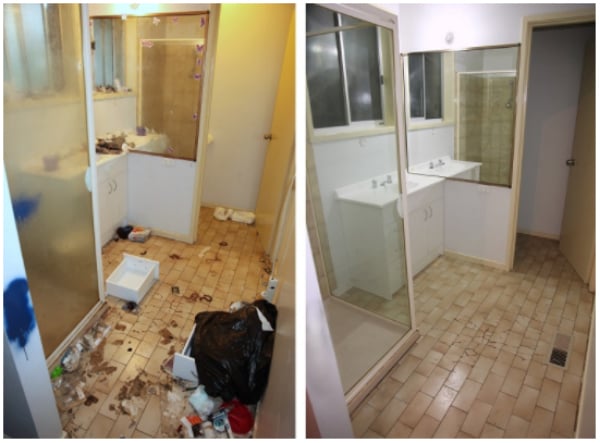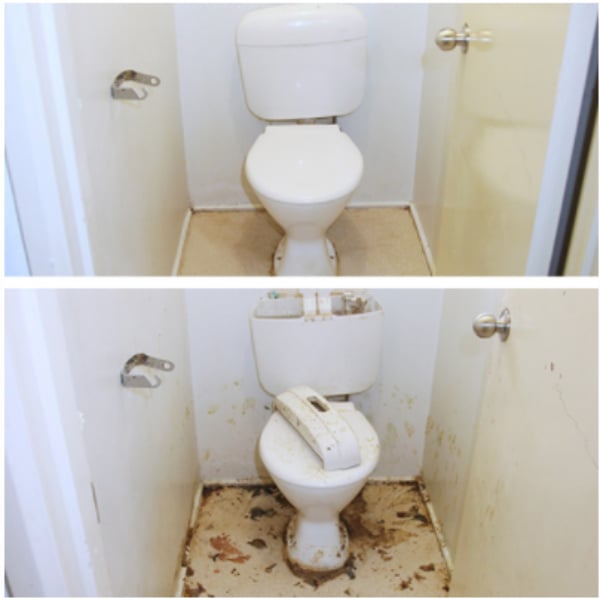
This is what it says on the back of Sandra Pankhurst’s business card:
‘Excellence is no Accident’
Hoarding and Pet Hoarding Clean Up * Squalor/Trashed Properties * Preparing the Home for Home Help Agencies to Attend * Odour Control * Homicide, Suicide and Death Scenes * Deceased Estates * Mould, Flood and Fire Remediation * Methamphetamine Lab Clean Up * Industrial Accidents * Cell Cleaning
I first saw Sandra at a conference for forensic support services. A gaggle of public servants, lawyers and academics had just emerged from a session on offenders with acquired brain injuries to descend on urns of crappy coffee and plates of sweating cheese. I passed a card table in the lobby where brochures were spread out next to a sign inviting you to drop your business card into an ice bucket for a chance to win a bottle of shiraz.
Next to the ice bucket— silver, with a stag’s head on either side—a tiny TV played scenes of before and after trauma-cleaning jobs (which brought to mind the words ‘faeces’ and ‘explosion’). Sitting behind the table a very tall woman, perfectly coiffed and tethered to an oxygen tank, fanned her hand out and invited me to enter my card. Hypnotised by her smile and her large blue eyes and the oxygen mask she wore like jewellery and the images on her TV, I haltingly explained that I don’t have business cards. I did, however, pick up one of her brochures, which I read compulsively for the remainder of the day.
Sandra is the founder of Specialised Trauma Cleaning (STC) Services Pty Ltd. Each day for the past twenty years, her job has led her into dark homes where death, sickness and madness have suddenly abbreviated the lives inside.
Most people will never turn their mind to the notion of ‘trauma cleaning’. But once they realise that it exists—that it obviously has to—they will probably be surprised to learn that the police do not do trauma clean-up. Neither do firefighters or ambulances or other emergency services. This is why Sandra’s trauma work is varied and includes crime scenes, floods and fires.


